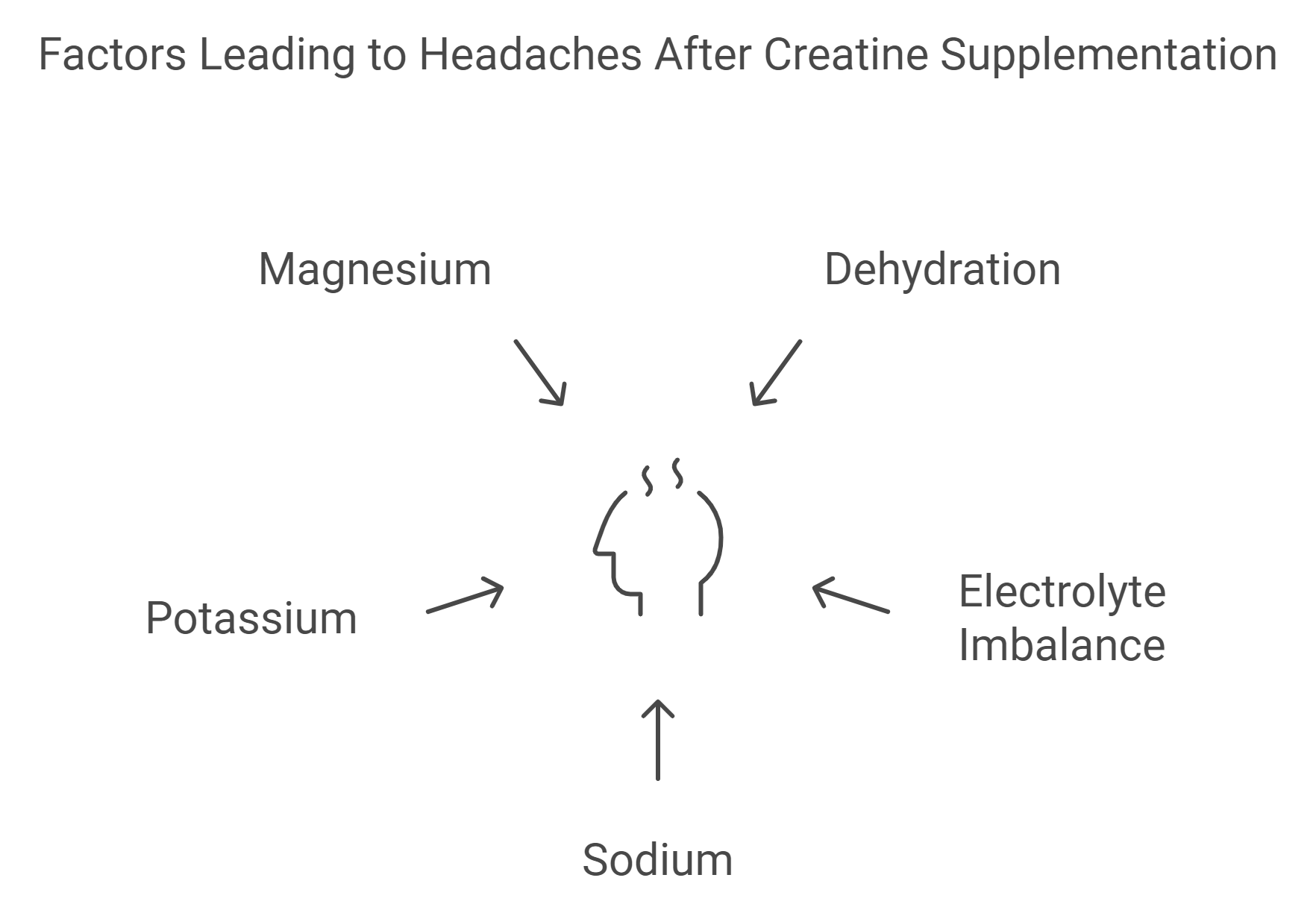Introduction:
Creatine is one of the most broadly utilized aids among athletes and bodybuilders, which is known for improving physical performance, as well as achieving the necessary muscular growth. At the same time, it is not about neglecting the fact that some users have reported having headaches after intake of creatine.
Here, we’ll look into creatine and headaches associations, discussing the probable causes, dishing out the most common perceptions, and proposing real-life resolutions for the problem.
Exploring the Link Between Creatine and Headaches
Anecdotal Evidence:
A fair number of users have mentioned the condition of headaches after creatine supplementation. Even though these accounts aren’t absolute proof of a cause-and-effect relationship between using creatine and getting headaches, on the other hand, this example can establish a correlation between creatine and obtaining headaches.
Scientific Studies:
Many scientific research proved that there was a great coexistence between creatine supplementation and headaches. On the other hand, conclusions have not been uniform all the time, but some findings indicate a certain relationship. Nevertheless, data collection methods, research limitations and people involvement factors in the reaction to creatine need to be considered.
Creatine and Headaches: Is It Possible?
Possible Causes:
Few possible determinants may be at play in those individuals on creatine giving in to head pains. Creatine supplement taking can be sometimes dangerous because water retention in muscles increases and dehydration may occur if sufficient hydration levels are not reached. However, factors such as the modes of delivery, dosage, individual differences in sensitivity, and interactions with other compounds can likewise be taken into account.

Dehydration and Electrolyte Imbalance:
Dehydration following creatine supplementation is a risk, and this in turn can cause electrolyte imbalance with headaches among other symptoms. Through such electrolytes like sodium, potassium, and magnesium which are very important for nerve function and hydration levels, their imbalances could disturb headache complications.

Addressing Common Concerns:
Side Effects of Creatine:
Creatine supplementation side effects can also be manifested through other issues like bowel discomfort and muscle cramps. Nevertheless, it is commonly accepted that creatine is mostly safe to use when it is used as prescribed and does not cause many side effects in people who use it in moderation.

Managing Headaches:
There are several strategies that could help with the headaches and they include. It is vital to have a sufficient amount of fluids in the body, thus taking in a regular amount of water is recommended. Adding to your current dosage of creatine, or perhaps opting for a different form/method of supplementation altogether may be an option to consider. Apart from that, consulting a medical expert can bring about individualized counsel by suggesting specific strategies.
FAQs:
Q: How common are headaches from creatine?
Creatine supplementation may cause headaches in some individuals quite often, but not so much in others. Not all can have this. While some experience it, others don’t. It’s indispensable to be aware of the way you feel and modify the behavior when needed.
Q: Can creatine interact with medications to cause headaches?
Creatine may interact with contradictory medication; some people may thus develop headaches and other oddities. If you are taking any kind of medications, and how to maximize safety lightly, please consult with your healthcare provider beforehand.
Q: What are the alternatives to creatine?
One of the issues you can come across with creatine, the supplement for athletic performance, is that it can have negative effects. If you are concerned about these side effects of creatine, you can try alternative supplements or other techniques for the improvement of athletic performance.
One option may be beta-alanine, another option is branched-chain amino acids (BCAAs) and lastly citrulline malate. Besides, maintaining a balanced diet and consistently practicing some exercise most probably can work as a replacement for using supplements to reach your fitness goals.
Conclusion:
For some people, headaches may be the result of their creatine inclusion program, so it is important to identify the causes and seek ways of solving them. Consequently, dosage can be adjusted depending on the intensity of the headache. Consulting a healthcare professional is crucial to manage the headaches with creatine and continue enjoying the benefits creatine offers for athletic performance and muscle growth.

Curtis Walcker
Supplement Consultant
Hey there! I’m Curtis Walcker, a dietary supplement expert with a passion for all things fitness and nutrition. Armed with a Master of Science degree in nutrition. I’ve spent years diving into the nitty-gritty of regulatory affairs, scientific research, and product development in the supplement industry. Read More

